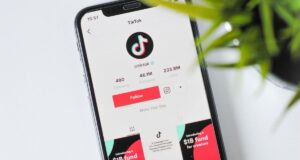
Customer experience is one of the main focuses of action for companies that propose to offer new technologies to healthcare companies. Apart from the complexities involved in promoting services, when it comes to bringing technology to segments such as home care, the challenge is even greater. The evolution of the power to analyze increasing volumes of data has unlocked a new perspective on the market, which puts the customer at the center of all strategic actions and decisions. And it is no coincidence that he is more judicious and selective than ever.
The abundance of data about the different stages of the experience journey has enabled personalized marketing, allowing companies today to strategically use interaction information, such as demographic or behavioral data. The combination of these factors brought to light humanized marketing, or consumer-first, which uses these same aspects and goes a step further by considering information from experience interactions and the consumption journey.
An annual survey conducted by Cedar revealed that 49% of healthcare consumers want their digital healthcare experience to be smoother and more like Netflix, Amazon or Uber. Knowing this, it’s no surprise that consumer app stores feature more than 350,000 health-related apps, with an average of 250 new apps hitting the market daily, as another recent study from the IQVIA Institute shows. There is a clear search for better quality experiences to be satisfied by new solutions on the market.
Transforming the experience
This demand can already be seen more strongly in more developed economies. In the United States alone, 29% of people say they use virtual care to connect remotely with a doctor or other healthcare professional, according to a new study released by Monigle, which interviewed 25,000 consumers and analyzed 200 healthcare brands in the country.
In Brazil, in 2019 alone, the number of patients undergoing Home Care and Hospitalization was 292 thousand, and has continued to rise since then, according to data from the National Center for Home Care Service Companies (NEAD). Here, telemedicine can now resolve more than 80% of cases, and less than 20% of patients’ health demands need to be directed to in-person care, according to research carried out by EBRAMED.
According to the 8th edition of Salesforce’s State of Marketing report, 86% of healthcare marketers say their organization leads company-wide customer experience initiatives, with marketing teams taking a leadership role in driving this initiative. Healthcare providers that implement changes focused on improving the consumer experience – including through marketing efforts – can see their revenue increase by up to 20% over five years, while care costs decrease by up to 30%, indicates a McKinsey survey.
In this scenario, the rapid and constant advancement of technological innovations allows us to consider the human dimension more and more closely, providing personalized and welcoming care to patients, and observing vital signs to humanize experiences. Humanized marketing must be part of the home care strategy and the entire chain, demonstrating to existing and potential customers the organization’s clear concern for exceeding expectations and delighting by doing everything in its power to provide the most necessary solutions and support, and in the right moment.
*Fabio Serpa is commercial and marketing director of the Pulsati Group
Source: https://www.mundodomarketing.com.br/o-sinal-vital-do-marketing-de-saude-e-a-humanizacao/


